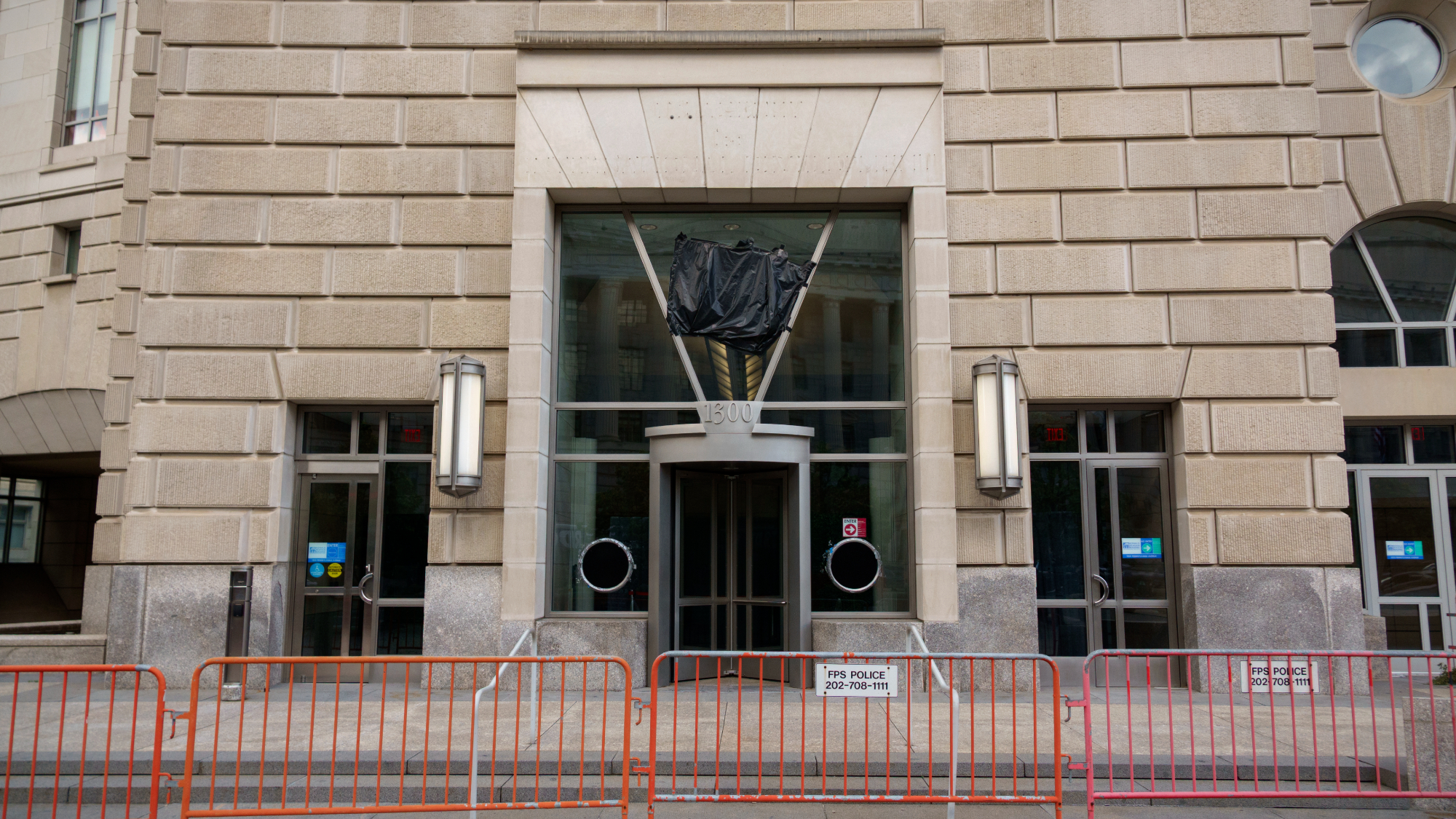Why China - with its massive economy - receives £71m a year in UK foreign aid
MPs request review into why a country with its own space programme is being sent British aid

A free daily email with the biggest news stories of the day – and the best features from TheWeek.com
You are now subscribed
Your newsletter sign-up was successful
MPs have requested a review into why the UK sent £71m in aid to China in a single year, despite the country having an economy five times the size of the UK’s.
Figures on British aid to China were “buried” in the Department for International Development’s (DfID) annual report, which was “quietly put out this week as MPs go on their summer holiday”, the Daily Mail says.
Why does Britain send aid money to China?
The Week
Escape your echo chamber. Get the facts behind the news, plus analysis from multiple perspectives.

Sign up for The Week's Free Newsletters
From our morning news briefing to a weekly Good News Newsletter, get the best of The Week delivered directly to your inbox.
From our morning news briefing to a weekly Good News Newsletter, get the best of The Week delivered directly to your inbox.
China became the world’s second largest economy in 2010, making the idea that Britain - with the world’s fifth largest economy - should send it aid money seem counterintuitive.
However, DfID formally closed its old Chinese aid programme in March 2011, replacing it with a development policy based on “shared global development objectives, global public goods and poverty reduction,” the department says on its website.
In practice, this means that the UK now spends money in China to help develop education, support human rights, combat illegal wildlife trade and promote green energy projects.
DfID says that it has made forging alliances with the “emerging powers” a “foreign and international development policy priority”, and that China, “by far the largest and fastest-growing emerging economy, is at the forefront of this effort”.
A free daily email with the biggest news stories of the day – and the best features from TheWeek.com
Many of the programmes DfID supports in China are also intended to be two-way exchanges, including projects to improve food security in low-income countries, help increase resilience to disasters in Asia and build trade relationships with countries across Africa.
Why do MPs want a review?
Former Conservative leader Iain Duncan Smith yesterday questioned why the UK was sending money to a country which was “breaking every rule in the book”. He described the aid spending as “utter madness” and demanded an urgent review into London’s relationship with Beijing.
“China is the second-largest economy in the world, and it is winning business all over the world by undercutting firms in the West,” he added.
“This makes it all the more urgent that we have a strategic review of the entirety of our relationship with and our dependency on China, including this sort of nonsense spending on aid.”
Responding to the criticism, the government defended its aid programme by saying that the UK offers “expertise and skills on shared challenges like climate change and health security”.
“Where there is mutual benefit, we invest money which supports UK interests and creates opportunities for UK business,” a spokesperson added.
Will the UK’s aid spend be decreased?
Britain is planning to cut its global aid budget by £2.9bn this year due to the economic damage of the coronavirus crisis, the government announced yesterday.
However, Foreign Secretary Dominic Raab insists the UK still intends to honour its commitment to spend 0.7% of gross national income on international development.
Still, government sources told the Daily Mirror that a “line by line” review of aid projects has been carried out with the “40 most vulnerable countries” prioritised for assistance. Consequently, the “axe would fall” on China, the Daily Mail reports.
Labour MP Sarah Champion, chair of the Commons International Development Committee, criticised the decision to announce cuts just before the summer break.
“If it is with immediate effect, do the projects know or will they find out via the media?” she wrote. “Is there an overarching strategy in place? Clearly there has been no consultation, but to release this news literally as parliament rises so there can be no scrutiny by MPs is poor practice.”
Arion McNicoll is a freelance writer at The Week Digital and was previously the UK website’s editor. He has also held senior editorial roles at CNN, The Times and The Sunday Times. Along with his writing work, he co-hosts “Today in History with The Retrospectors”, Rethink Audio’s flagship daily podcast, and is a regular panellist (and occasional stand-in host) on “The Week Unwrapped”. He is also a judge for The Publisher Podcast Awards.
-
 What to know before filing your own taxes for the first time
What to know before filing your own taxes for the first timethe explainer Tackle this financial milestone with confidence
-
 The biggest box office flops of the 21st century
The biggest box office flops of the 21st centuryin depth Unnecessary remakes and turgid, expensive CGI-fests highlight this list of these most notorious box-office losers
-
 The 10 most infamous abductions in modern history
The 10 most infamous abductions in modern historyin depth The taking of Savannah Guthrie’s mother, Nancy, is the latest in a long string of high-profile kidnappings
-
 How corrupt is the UK?
How corrupt is the UK?The Explainer Decline in standards ‘risks becoming a defining feature of our political culture’ as Britain falls to lowest ever score on global index
-
 ‘The censorious effect is the same, even if deployed covertly’
‘The censorious effect is the same, even if deployed covertly’Instant Opinion Opinion, comment and editorials of the day
-
 The high street: Britain’s next political battleground?
The high street: Britain’s next political battleground?In the Spotlight Mass closure of shops and influx of organised crime are fuelling voter anger, and offer an opening for Reform UK
-
 Is a Reform-Tory pact becoming more likely?
Is a Reform-Tory pact becoming more likely?Today’s Big Question Nigel Farage’s party is ahead in the polls but still falls well short of a Commons majority, while Conservatives are still losing MPs to Reform
-
 Taking the low road: why the SNP is still standing strong
Taking the low road: why the SNP is still standing strongTalking Point Party is on track for a fifth consecutive victory in May’s Holyrood election, despite controversies and plummeting support
-
 What difference will the 'historic' UK-Germany treaty make?
What difference will the 'historic' UK-Germany treaty make?Today's Big Question Europe's two biggest economies sign first treaty since WWII, underscoring 'triangle alliance' with France amid growing Russian threat and US distance
-
 Obama, Bush and Bono eulogize USAID on final day
Obama, Bush and Bono eulogize USAID on final daySpeed Read The US Agency for International Development, a humanitarian organization, has been gutted by the Trump administration
-
 Is the G7 still relevant?
Is the G7 still relevant?Talking Point Donald Trump's early departure cast a shadow over this week's meeting of the world's major democracies